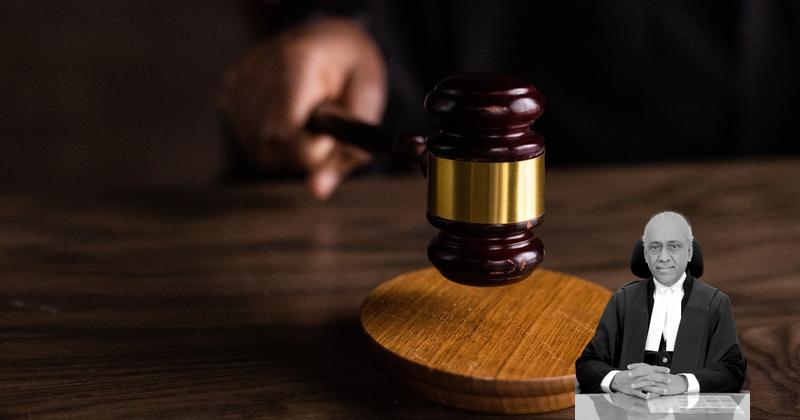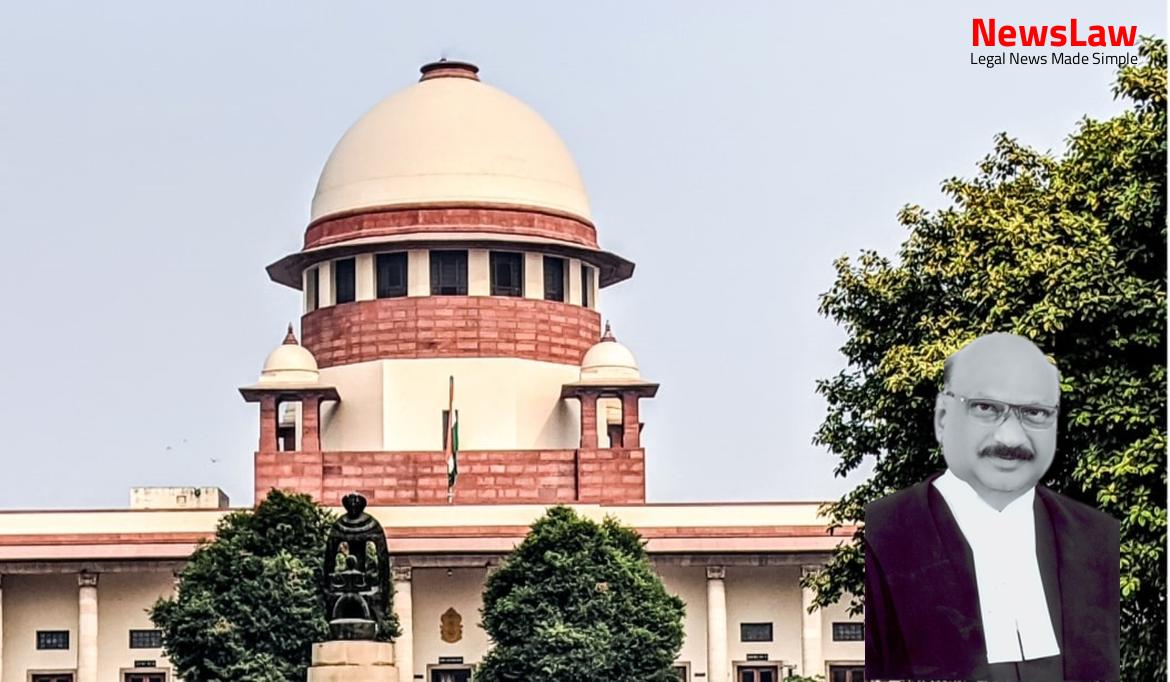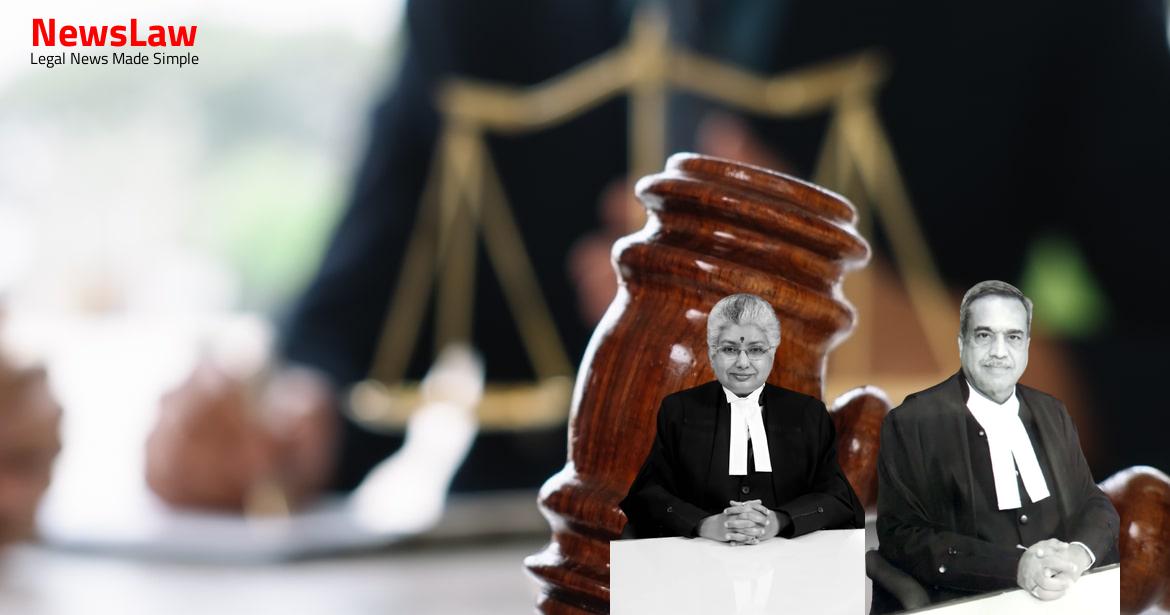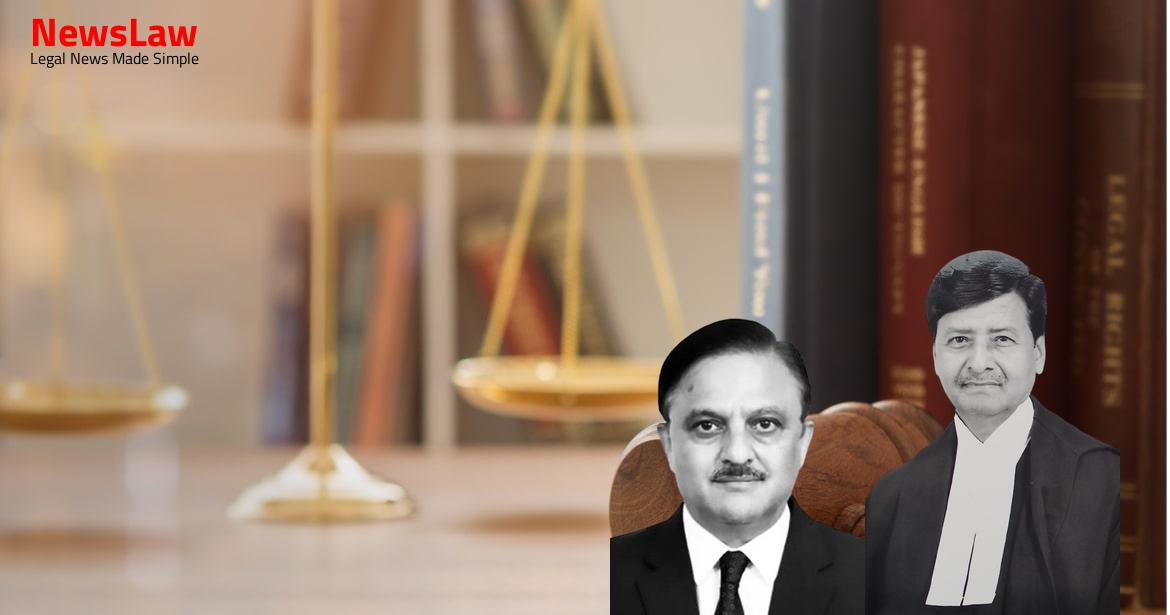Mohana and Shri Siddharth Agrawal, learned senior counsel appearing for the de facto complainants and Shri Ranjit Kumar, learned senior counsel appearing for the State of Tamil Nadu. After interviews were held on 24.12.2014 and the Select List got published, one Devasagayam lodged a complaint on 29.10.2015 with the Chennai PS CCB against 10 individuals, alleging that he paid a sum of Rs.2,60,000/- to a Conductor by name Palani for getting the job of Conductor in the Transport Corporation for his son. The Additional Public Prosecutor took a stand before the High Court in the said petition filed by Gopi that all the 81 persons including Gopi will be enlisted as witnesses in the complaint registered at the instance of Devasagayam.
Despite the direction issued by the High Court on 20.06.2016 to the Police to go beyond lower level officers and find out where the money trail ends (more than about 2 crores allegedly given to the Minister during January and March, 2015) and despite Gopi making specific averments against the brother and brother-in-law of the Minister, the Police filed a Final Report on 13.06.2017 under Section 173(2) of the Code, only against 12 individuals including those 10 persons named by Devasagayam. Ganesh Kumar then lodged a criminal complaint in FIR No.298 of 2017 on 09.09.2017 with the Chennai PS CCB, against four persons including the Minister Senthil Balaji. A Final Report was filed on 07.06.2018 in FIR No.298 of 2017, against the Minister Senthil Balaji and three others, only for offences punishable under Sections 420 and 506(1) read with Section 34 IPC. It was further stated in the complaint that after money was paid to Shanmugam, the complainant also met Ashok Kumar (brother of the Minister) and Senthil Balaji (Minister) and that the Minister assured to get appointment orders issued. Arun Kumar, working as a Driver in the Metropolitan Transport Corporation and who was cited as witness LW 47 in the Final Report in CC No.3627 of 2017 arising out of FIR No.441 of 2015 (Devasagayam’s complaint) moved the Madras High Court by way of a petition under Section 482 of the Code in Crl.
Against the said order dismissing his discharge petition, the Minister filed a criminal revision petition in Crl. 24 of 2021 against 47 persons including the Minister Senthil Balaji and Shanmugam (PA to the Minister) in which the offences under the PC Act were included. (xv) Thereafter, the person alleged to be the PA to the Minister, namely, Shanmugam, who was arrayed as Accused No.3 in CC No.25 of 2021 arising out of FIR No.344 of 2018 lodged by Arulmani, filed a petition in Crl.O.P No.13374 of 2021 on the file of the High Court seeking to quash CC No.25 of 2021. Sahayarajan who was Accused No.3 in CC No.19 of 2020 also filed a quash petition in Crl.O.P No.13914 of 2021, enclosing a joint compromise memo seeking to quash CC No.19 of 2020. (xviii)
At this stage, Devasagayam who filed the first complaint in FIR No.441 of 2015 and in whose case a Final Report was filed in CC No.3627 of 2017, filed a very strange petition on the file of the High Court in Crl.
By an order dated 09.11.2021, the Trial Court directed the supply of certified copies of the FIRs, complaints and the statements under Sections 161 and 164 of the Code. As against the order dated 30.07.2021 passed by the Madras High Court quashing CC No.25 of 2021 on the basis of the Joint Compromise Memo, a special leave petition was filed by one P. These writ petitions were 13 allowed by the High Court by an order dated 01.09.2022, primarily on the ground that one of the four calendar cases had already been quashed by the High Court by order dated 30.07.2021 on the basis of a Joint Compromise Memo and that further proceedings in the other calendar cases had been stayed by the High Court.
(xxviii) Challenging the order of the High Court dated 31.10.2022 directing de novo investigation, the ED has come up with one appeal, two candidates who were unsuccessful in the selection have come up with two separate appeals, Anti-Corruption Movement has come up with one appeal, the person who compromised the matter with the accused and supported the accused before the High Court for quashing the complaint has come up with one appeal and one of the accused has come up with another appeal. (xxxi) Thus, we have on hand 12 appeals, four of them challenging the quashing of summons issued by ED, six of them challenging the order for de novo investigation, one of them challenging an order permitting ED to have inspection of documents and the last arising out of the order refusing to grant further time for completion of investigation. This application is taken out on the ground that a similar prayer made 15 in Criminal Appeal Nos.1514-1516 of 2022 was turned down by this Court, in the order dated 08.09.2022, in the hope that the State Police would act fairly and impartially.
Since the batch of appeals on hand (not including the contempt petitions and the application for constitution of a Special Investigation Team) arise out of four different orders of the High Court, let us divide this Judgment into four parts, the first dealing with the challenge to the order for de novo investigation; the second dealing with the challenge to the order setting aside the summons issued by ED; the third dealing with the order permitting the ED to have inspection of the records of the Trial Court; and the fourth dealing with an order refusing to grant extension of time to complete investigation. While he was happy about paying illegal gratification for procuring employment for his son, he was not unhappy about the Police not including the offences under the PC Act in FIR No.441 of 2015. The inclusion of the name of the Minister and his accomplices in the Final Report submitted under Section 173(8) and the inclusion of the offences under the PC Act seems to have bothered Devasagayam more than the Minister himself. Devasagayam also stated in his petition seeking de novo investigation that Baskar and Kesavan against whom he made a specific complaint, are not shown as accused. In paragraph 9 of his petition seeking de novo investigation, Devasagayam even relied upon a judicial precedent and contended in paragraph 10 that the Final Report under Section 173(8) had been filed without issuing notice to him and that the charges contained in 19 the Report against the other accused are irrelevant to the facts of his own case. The present criminal proceeding is manifestly attended with mala fide and/or the proceeding is maliciously instituted with an ulterior motive for wreaking vengeance on the accused and with a view to spite him due to private and personal grudge.” It appears that Devasagayam, originally seems to have had a genuine grievance against the culprits at the bottom of the layer, but he later turned out to be a Trojan horse, willing to sabotage the investigation against influential persons. to quash proceedings in a case like the one on hand, would indeed secure the ends of justice.” It is seen from the above averment of Devasagayam, that he was virtually pleading the case of the accused and seeking de novo investigation. Though the original petition and the arguments recorded in paragraph 21 of the impugned order do not reflect one particular ground, the operative portion of the impugned order allows de novo investigation on a ground not raised in the petition.
It is on this contention that the High Court thought fit to order de novo investigation not only in the case in which Devasagayam sought de novo investigation but also in all the criminal cases. Suddenly, he became worked up after the filing of the Report under Section 173(8) leading to the registration of Calendar Case No.24 of 2021 including the offences under the PC Act. Therefore, it is directed the investigation should be conducted ab-initio comprehensively without reference to the earlier investigation on record covering all the aspects in relation C.C.No.19 of 2020 and C.C.No.24 of 2021 including whether the offence under Prevention of Corruption Act, 1988 are made out against the accused. According to them, the expression “ wiped out ” had 24 been used out of context and that what was sought to be removed by the High Court was only the conclusions reached by the Investigating Officer on the basis of the materials already collected. As rightly pointed out by Shri Gopal Sankaranarayanan, learned senior counsel, the High Court has used in the impugned order, several words and expressions such as, (i) reinvestigation to be started ab initio, (ii) wiping out the earlier investigation altogether; (iii) collect fresh evidence and material; and (iv) without reference to the earlier investigation on record.
Even while supporting the impugned order, the learned senior counsel for the accused and the learned senior counsel for Devasagayam, requested us to read down paragraphs 79 to 81 of the impugned order and go by its intent. The accused filed a petition in the High Court of Delhi seeking a transfer of investigation to CBI on the ground that they were working as Informers for the Intelligence Agencies and that they have been falsely implicated. Since discharge was not ordered, they approached the High Court, but the High Court remanded the matter back to the Sessions Court. They read as follows:- “Question 1 1.1. After exploring the meaning of “ initial investigation ” in paragraph 21 and the meaning of “ further investigation ” in paragraph 22, this Court recorded in paragraph 23, what a fresh investigation/reinvestigation/ de novo investigation is and the circumstances under which the same can be ordered. Where the investigation ex facie is unfair, tainted, mala fide and smacks of foul play, the courts would set aside such an investigation and direct fresh or de novo investigation and, if necessary, even by another independent investigating agency. In paragraph 46, this Court pointed out that while ordering de novo investigation, there are two options open to the superior court namely, (i) to direct the report already prepared or the investigation so far conducted, not to form part of the records of the case; or (ii) to direct the report already prepared or the investigation so far conducted to form part of the record. In the order impugned in these appeals, the High Court has indicated by using four different expressions and phrases that the investigation so far conducted shall not form part of the record. For easy appreciation, the status of parties who are the 30 appellants in the appeals arising out of the order for de novo investigation and a brief indication of who they are, are presented in a tabular column as follows:- Civil Appeals arising out of Special Leave Petitions and Diary Numbers Name of appellant Brief description of who he is and how he is aggrieved by the order of de novo investigation SLP (Crl.) Nos.1207- 1208 of 2023 Director, Enforcement ED is aggrieved because any shadow cast on the investigation of the predicate offence, is taken advantage of by the accused to thwart the investigation of the offence of money laundering.
SLP (Crl.) D.No.961 of 2023 Anti-Corruption Movement A NGO interested in combating corruption. Sundaram, learned senior counsel appearing for different accused, uniformly raised a chorus, vociferously objecting to the maintainability of the appeals by each of those appellants, against the order of de novo investigation. We have seen in this case, persons aspiring to secure public employment, paying illegal gratification, through persons who are public servants, to persons in power and later coming to the Court supporting the accused on the basis of an out of Court settlement. As a matter of fact, very vocal submissions were made on the question of locus in the previous round of litigation in P. It was contended by the learned senior counsel that the confession statements recorded before the Magistrate are sacrosanct and that the copies of the same cannot be made available to third parties and that at any rate, the appellants have not even explained as to whether they filed third party copy applications as stipulated in the Rules, 2019 and obtained these copies officially. Rule 207(12) and Rule 210 read as follows:- “ 207(12) After recording the confession statement of an accused, the Magistrate shall arrange to take two photocopies of the same under his direct supervision and certify the same as true copies. – Application for the grant of copies of judgment or order or any proceeding or document in the custody of a Court by a third party to the proceeding shall be allowed only by order of the Court obtained on a petition supported by an affidavit setting forth the purpose for which the copy is required.” It is clear from Rule 207(12) that a confession statement is a confidential document till the time investigation is complete and Final Report filed. No 7503 of 2016, there 36 have been several proceedings before the High Court where the parties have filed copies of several documents. The timeline of events provided by Shri Kapil Sibal, 37 learned senior counsel is as follows:- 29.10.2015 Complaint of Devasagayam against 10 individuals but not the Minister. 06.2018 Cognizance was taken in CC No.19 of 2020 arising out of FIR No.298 of 2017 against the Minister and three others. On the basis of the above timeline of events, it is contended by Shri Kapil Sibal that the Minister was implicated in the case on 08.03.2021, for offences under the PC Act immediately after the announcement of the elections to the Legislative Assembly, as he had switched over from the party in power to another. No.7503 of 2016, disposed of by the High Court on 20.06.2016, were made at a time when he was still a Minister in the previous regime and it happened more than a year before he became part of a splinter group. Interestingly, we have two appeals challenging the correctness of the order of the High Court dated 31.10.2022 directing de novo 40 investigation, one of which is by the complainant V. Ganesh Kumar not only for being party to a job-for-cash scam but also for turning turtle and supporting the accused and thereafter coming to this Court to assail the order of de novo investigation, despite being an employee of the Corporation.
Also Read: https://newslaw.in/case-type/civil/c-a-no-007467-007470-2014/
Interestingly, his attack on the order of de novo investigation is not to achieve the same purpose as the victims want to achieve, by assailing the same order. The victims assail the order of de novo investigation for the purpose of ensuring that the offences under the PC Act are properly investigated and tried. As we have narrated in the sequence of events, ED registered an Information Report on 29.07.2021, only after filing of a Final Report under Section 173(8) of the Code., in CC No.24 of 2021, including the offences punishable under the PC Act. As against the portion of the order of the Trial Court disentitling ED to certified copies of the unmarked documents, ED filed petitions under Section 482 of the Code before the High Court.
Immediately, the Minister and two others filed three separate writ petitions seeking the quashing of the summons issued by ED. Union of India ; (ii) the necessity for the existence of jurisdictional facts before an authority or officer assumes jurisdiction; (iii) the absence of a combination of criminal activity amounting to a scheduled offence, the generation of proceeds of crime therefrom and the act of money-laundering, which form the jurisdictional fact for ED to step in; and (iv) the danger of allowing the ED to go on a fishing expedition without any material. Mr.Aryama Sundaram, learned Senior Counsel appearing for the petitioner in Writ Petition No.l8209 of 2022 pleaded at the outset that his client’s case is squarely covered by the judgment of the Hon’ble Supreme Court in Vijay Madanlal Choudhury and others case (supra) in his favour, again proceeding further contended that Mr.R. Thus, it is seen from the impugned order that at least two out of three accused specifically argued before the High Court that their case was squarely covered by the decision of this Court in Vijay Madanlal Choudhary, but interestingly most of the arguments advanced before us turned out to be an attack on the correctness of the decision in Vijay Madanlal Choudhary.
In paragraph 14, the High Court took note of the quashing of the complaint for the predicate offence in one case and the stay of further proceedings in the other two cases relating to predicate offences. Since lot of arguments were advanced before us as though the ED proceeded without the existence of jurisdictional facts, it is necessary to extract paragraph 20 of the impugned order to show what the High Court thought to be a jurisdictional fact. Therefore, on this sole ground, the High Court concluded in paragraph 22 of the impugned order that the ED has to await the outcome of the 49 proceedings for quashing the criminal complaints, in which a stay order was in force.
Needless to mention, if the proceedings in C.C.No.l9 of 2020 and C.C.No.24 of 2021 are quashed pursuant to the orders in the applications filed by the respective persons to quash the proceedings, in which event, the respondent cannot step in or initiate any proceedings under the Prevention of Money-laundering Act, as held by the Hon’ble Supreme Court in Vijay Madanlal Chaudhary and others and in Parvathi Kollur and another v. Therefore, the respondent is hereby refrained from proceeding any further pursuant to the impugned proceedings in ECIR/MDSZO/21/2021, till the disposal of the Criminal Revision Case No.224 of 2021, Criminal Original Petition No.15122 of 2021 and the SLP (Crl) Diary No.9957 of 2022 (SLP (Crl) No.3841 of 2022).”
Irrespective of the correctness of the reasonings given by the High Court in the impugned order, the conclusion of the High Court was only this, namely, that the ED cannot proceed, till the disposal of (i) Criminal Revision Case No.224 of 2021 filed by Minister-Senthil 50 Balaji against the order of the Trial Court refusing to discharge him; and (ii) Criminal O.P. Interestingly, none of the accused has come up with any appeal challenging the order of the High Court dated 01.09.2022, on the ground that the High Court ought to have quashed the summons issued by the ED in total, on other grounds.
Realising this difficulty in law, the accused changed the theme of the song completely before us, despite the fact that they were ordained as respondents in the appeals only to support the impugned order of the High Court. But what the accused sought to do before us was to support the judgment and seek an enlargement of the decree, without independently filing appeals. The contentions of Shri Kapil Sibal, learned senior counsel are: (i) that to constitute the offence of money-laundering, one must have involved in any process or activity connected to the proceeds of crime; (ii) that none of the three FIRs which formed the basis for the registration of an Information Report contained any allegation of generation of proceeds of crime or the offence of money-laundering; (iii) that the ED was never in possession of any material to suspect that the accused did any activity connected with the proceeds of crime; (iv) that this is why the ED filed applications before the Special Court seeking copies of documents to find out if something could be found; (v) that under Section 66(2) of PMLA, the flow of information can be only from the ED to the other authorities about the contravention of the provisions of any other law and not the other way about; (vi) that there are lot of inherent contradictions in the way the provisions of the PMLA were interpreted in Vijay Madanlal Choudhary ; (vii) that though Section 50(2) of PMLA empowers the Director and his subordinates to summon any person whether to give evidence or to produce any record during the course Bank of Bihar, to the effect that an Explanation cannot widen the scope of the main Section; (xi) that it is only where proceeds of crime are laundered that the PMLA comes into play, though the existence of proceeds of crime is a sine qua non for the commission of an offence under PMLA; (xii) that if the ED were to have jurisdiction to investigate solely on the basis of information that a predicate offence has been committed, involving the proceeds of crime, it would amount to empowering the ED to enter the domain of the State Police, thereby causing fissures in the federal structure; (xiii) that the mere existence of proceeds of crime without the quantum of proceeds being specified/identified and without the 55 proceeds of crime being laundered, an offence of money-laundering cannot be made out; (xiv) that it was wrongly decided in Vijay Madanlal
Choudhary that it was not a penal statute, though the object of the Act is to prosecute and punish a person for the offence of money-laundering; (xv) that the procedural safeguards available under the Code are also not available and hence Vijay Madanlal
Case Title: Y. BALAJI Vs. KARTHIK DESARI (2023 INSC 542)
Case Number: Crl.A. No.-001671-001673 / 2023



